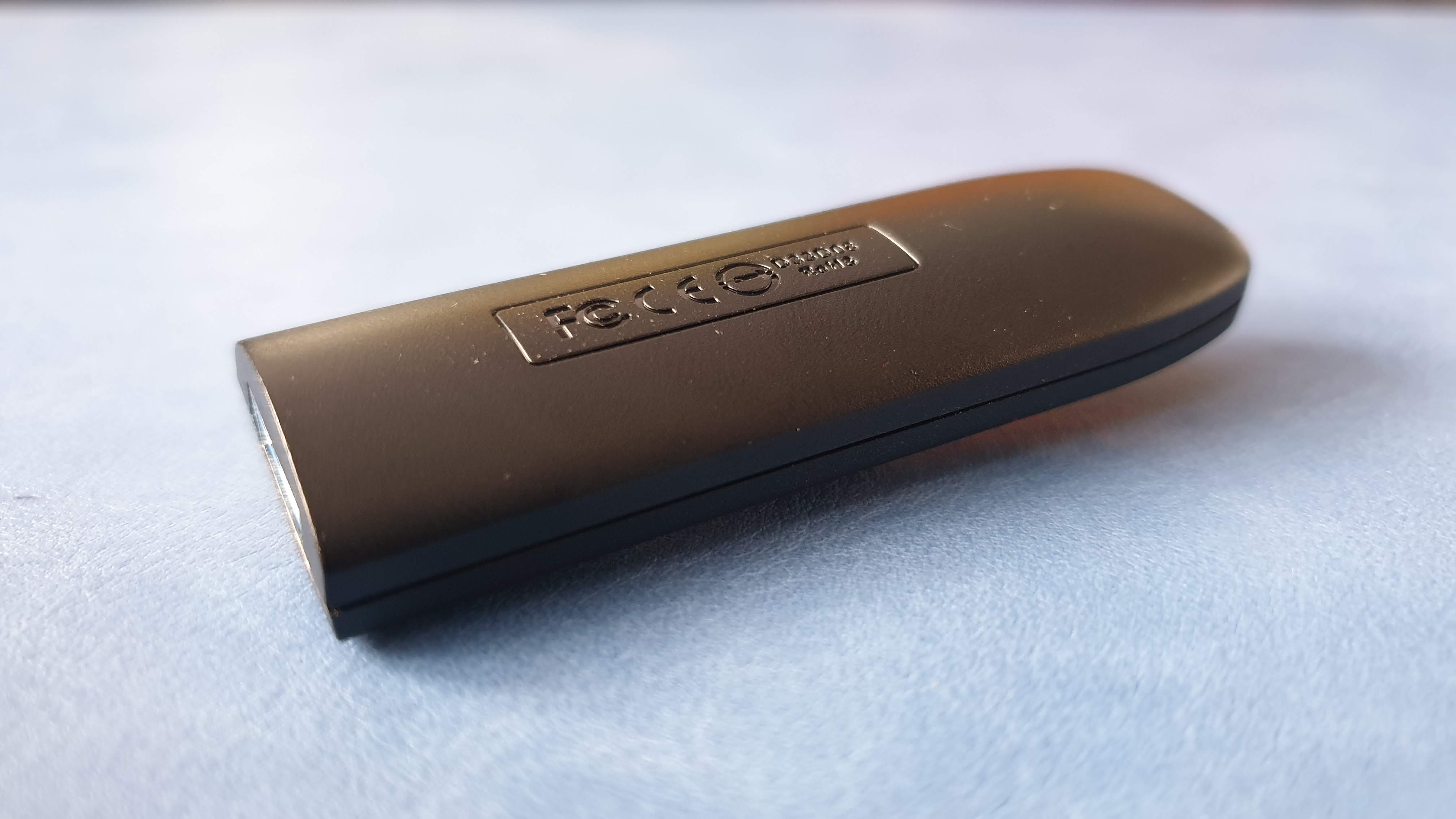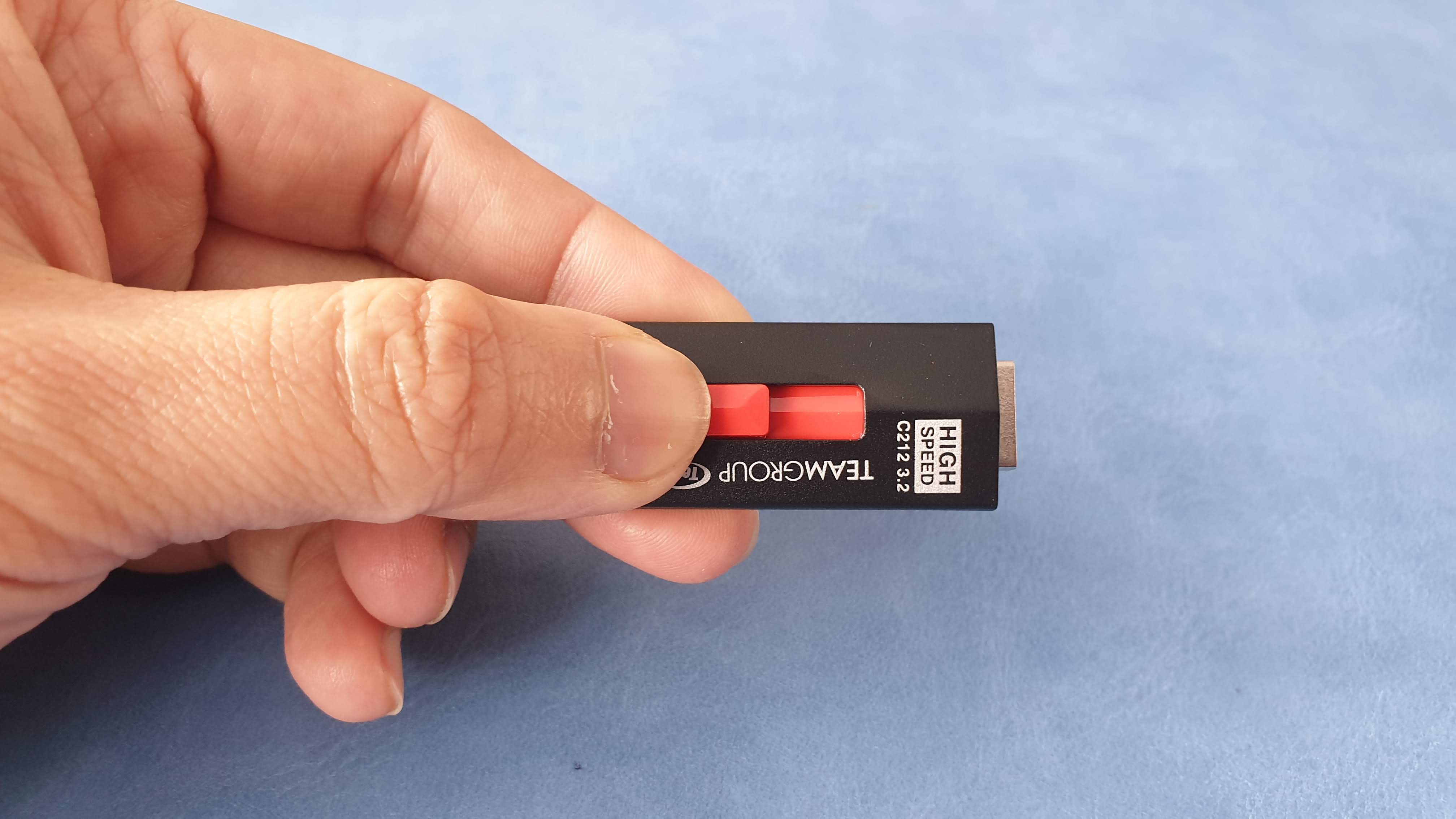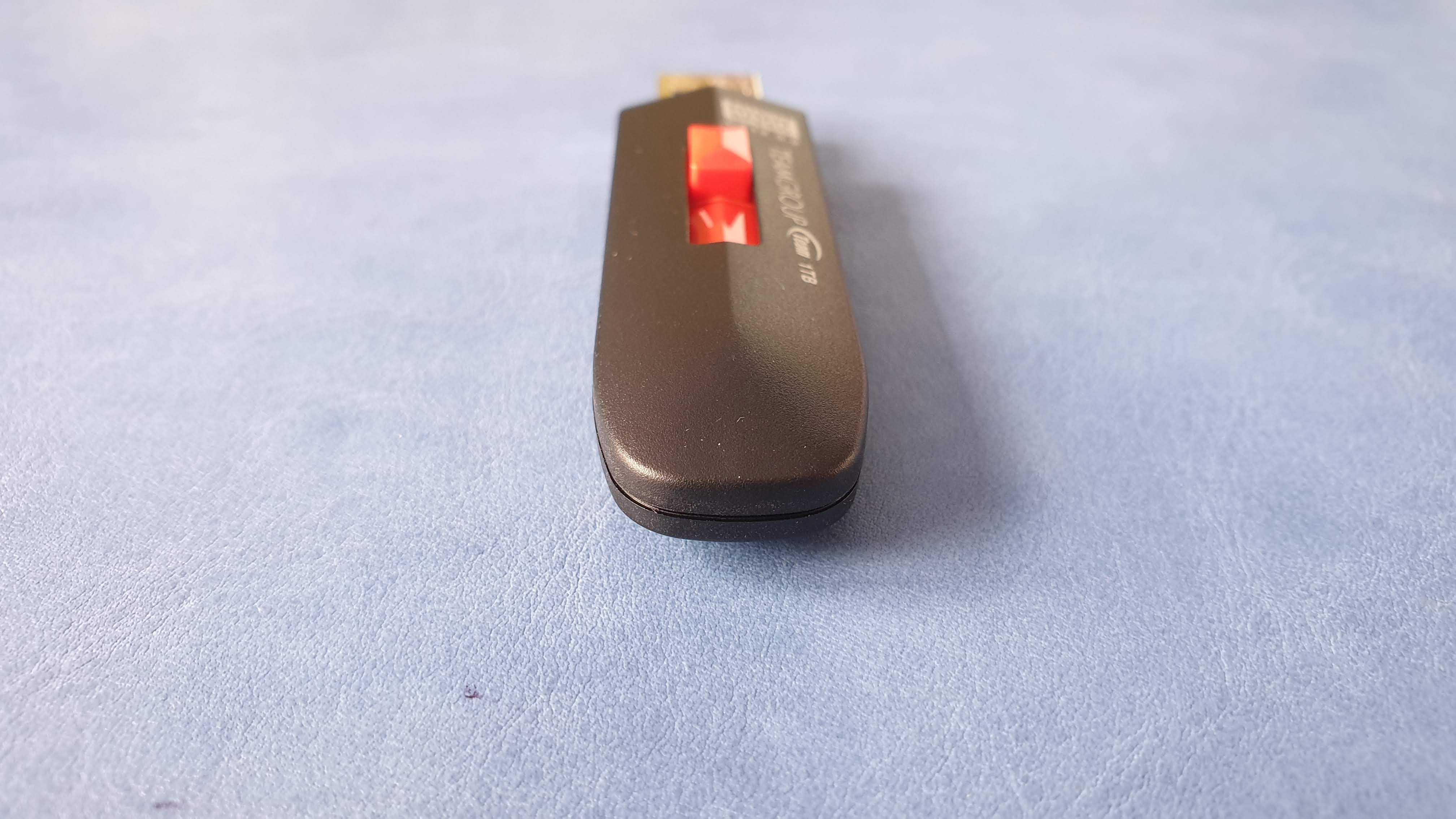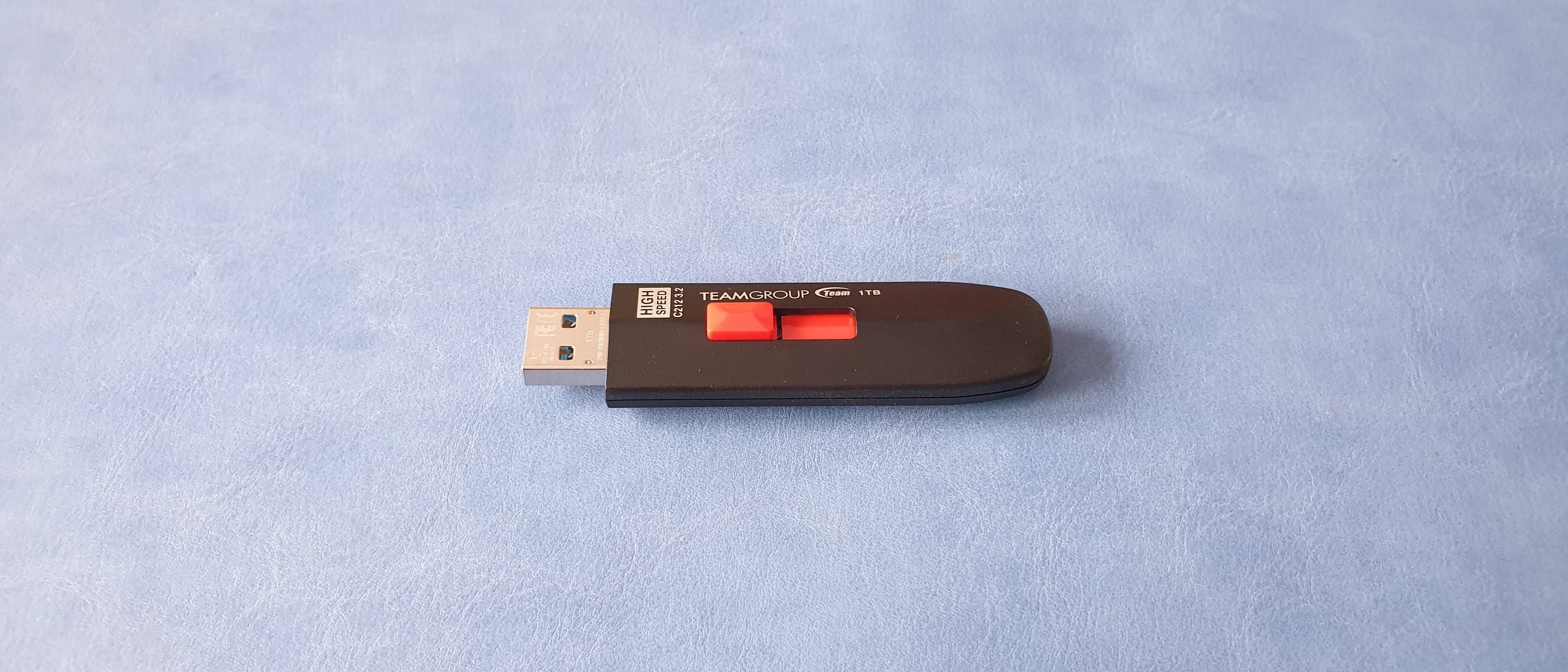TechRadar Verdict
The C212 Extreme Speed USB flash drive is good, very good and one that’s worthy of an editor’s choice. Teamgroup made the right decisions when it comes to the design despite the plastic. Using a Type-A connector might not please everyone though.
Pros
- +
Plastic finish
- +
Compact design
- +
Superb Price
- +
Great Performance
Cons
- -
Type-A connector means no native mobile support
Why you can trust TechRadar
Two minute review
TC21231TBB01. Remember that name, it’s that of Teamgroup’s new 1TB USB flash drive, the C212. There’s two reasons why this storage device stands out of the usual plethora of USB thumb drives. It is fast, ridiculously fast for what it offers and it is affordable, surprisingly affordable actually for the capacity and performance it delivers.
Teamgroup somehow delivered a product that has eluded the market for so long. A USB flash drive that is competitive with external SSDs and as cheap - if not cheaper.
It was not so long ago (well, nearly nine years ago), that Kingston unveiled its 1TB flash drive with an eye-watering price tag. $3,300 - 22x the price of the C212 - got you the 1TB DataTraveler HyperX Predator 3.0. Keep an eye on its 2021 follow up, the similarly-priced Kingston DataTraveler Max 1TB - we hear that it is a scorcher.
- Also check out our roundup of the best secure drives
Pricing and availability
The 1TB version of the Teamgroup C212 retails for $155 at Newegg; the 256GB and 512GB versions sell for $50 and $88 respectively. Amazon.com sells it for a tad more but - on the other hand - offers international shipping as an option

Design
Nothing out of the ordinary and barely any fancy features. It looks like the gazilions of other USB drives out there with its black body and red accents. There’s a slider that pushes and pulls the USB 3.2 Type-A connector out of the drive; Teamgroup went further by patenting the mechanism as it claims it provides 10 percent extra strength.

A plastic body means that the drive is particularly light which is important to reduce stress on the USB connector. At 9g and with reasonably compact dimensions (78 x 20 x 12.2mm), it fits comfortably in the inner pocket of a pair of jeans.
One could potentially pry it open and get rid of the body altogether keeping only the bare electronics but we’d shy from that - at least for now. We noticed that the slider does rattle a bit which might put off some potential buyers but that’s more of a distraction rather than a design flaw.

Performance and in use
The C212 left us with puzzled looks when we carried out the tests on the Bleujour Kubb Intel-based mini computer. Not because it performed badly but because it performed beyond our expectations. It did reach 600MBps on CrystalDiskMark (Sustained read) but paradoxically, that was the worst test result of the four that we performed.
Here’s how the Teamgroup C212 performed in our suite of benchmark tests:
CrystalDiskMark: 615MBps (read); 200MBps (write)
Atto: 966MBps (read, 256mb); 919MBps (write, 256mb)
AS SSD: Did not run
AJA: 728MBps (read); 842Mbps (write)
Even on our real life 10GB single-file transfer, it notched a very respectable 480MB which is faster than many external SSDs that we’ve tested to date. And that wasn’t something we’d expect given the nature of the C212 (no-frill, down-to-earth).
More surprising was the high scores obtained using another popular storage speed benchmark, ATTO. With numbers well in excess of 900MBps on read and write (both sustained), the C212 truly surpassed our expectations, very likely with the help of 3D TLC NAND chips.
What comes next?
It is well known (and an unwritten rule) that the capacity of flash-based storage doubles (with the notable exception of one lonely 400GB Sandisk microSD card). So the next logical step for removable memory - both microSD cards and USB sticks - would be 2TB.
Will this happen? There’s no reason why not but it will depend a lot on demand and supply. It is telling that one of the biggest flash producers of them all - Samsung - has yet to produce a 1TB microSD or a 1TB USB flash drive. A sign perhaps that - when capacity is constrained - higher margin products such portable USB drives, are prioritized.
The abundance of cheap cloud storage solutions coupled with the emergence of smartphones as the main computer for billions of users means that the number of removable, physical storage devices sold will go down, rather than up, over time.
Oh and one more thing, we’ve noticed that 1TB and even 2TB USB flash drives have flooded Amazon and other online marketplaces. They often look the same, carry ridiculously low price tags and have equally ridiculous sounding names. Save yourself the trouble and don’t buy them even if they have positive reviews.

Should I buy the Teamgroup C212?
Buy it if:
You want something cheap, fast and capacious
The C212 is not the cheapest 1TB flash drive but it is one of the fastest we’ve tested, so that balances out.
You want some peace of mind
It comes with a five-year warranty which means that they will replace it if it fails. Teamgroup won’t however recover your lost data. You will need a separate data recovery service for that. Just make sure you’ve stored your data elsewhere preferably with a cloud backup service.
Don’t buy it if:
You want the absolute cheapest large capacity 1TB USB drive
There are cheaper 1TB USB sticks but they tend to be slower, far slower; Sandisk’s 1TB Ultra Dual Drive Luxe USB Type-C flash drive sells for around $122 although you can get it for just over $100 at Amazon at the time of writing.
You’re looking for a USB with a Type-C connector
The C212 has an old-school Type-A connector which means that it can’t natively connect to a raft of new devices including all recent smartphones.
- We've also highlighted the best USB flash drive

Désiré has been musing and writing about technology during a career spanning four decades. He dabbled in website builders and web hosting when DHTML and frames were in vogue and started narrating about the impact of technology on society just before the start of the Y2K hysteria at the turn of the last millennium.
